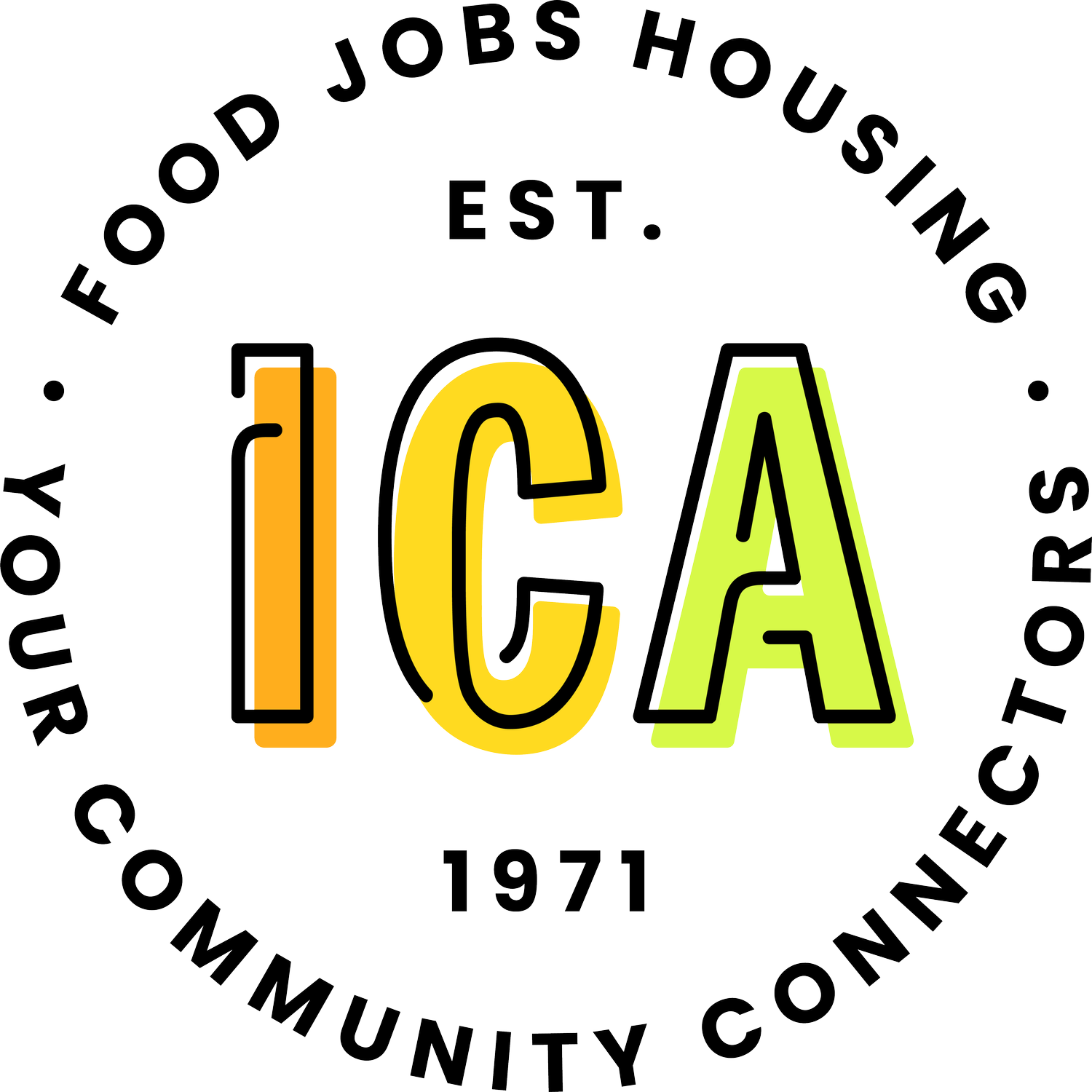Of the many ways COVID has impacted our community, one of the most dire is the increase in food insecurity for our neighbors. Prior to the pandemic, 1 in 11 Minnesotans were food insecure; that number has now risen to 1 in 8. ICA opened our doors 50 years ago to provide essential food for our neighbors; addressing hunger and food insecurity continues to be a key focus.
What is Food Insecurity?
According to the USDA, the term "food insecurity" is defined as the lack of consistent access to enough food for all family members to lead an active, healthy life . Hunger, though related, refers to a personal, physical sense of discomfort. Food insecurity is a financial issue; hunger is a physical one.
What Does Food Insecurity Look Like?
Food insecurity takes a variety of forms. Often, food insecurity can mean a family has to choose between food and another essential need.
Food insecurity can look like:
choosing between food and
transportation
medical care
housing
utilities
purchasing cheap, unhealthy food because a family cannot afford more nourishing foods
relying on friends, family, or workplace for food
Families can experience food insecurity for just a short time -- weeks or months -- or as a more ongoing crisis.
How ICA Addresses Hunger & Food Insecurity
ICA is available to help anyone in our community who is in need of food. There are no income requirements and we offer help without judgement.
We serve anyone who needs help because we know that sometimes even a family that appears to be doing well financially might have a lean month where they have to choose between a bill and groceries. In addition to free food, we offer assistance with employment, rent and utility assistance, and referrals to other programs and services.
In 2020, 46% of families who visited ICA used our services three or fewer times. Regardless of why or how long a family is in need of food or other services, ICA is here to help.
If you or someone you know could use some extra help, call to make an appointment or speak to our case managers: 952.938.0729. Learn more about our services.
“Kids can’t focus on learning when they’re hungry.
Being hungry also leads to behavior issues. Having food from ICA really helps in the areas of both academics and behavior.
”
The Devastating Impact of Food Insecurity
Food insecurity can have serious, lasting effects on the people who experience it. Some of the most common impacts include:
Poor health: People who are food insecure experience higher rates of chronic disease including high blood pressure, heart disease, diabetes, and mental health issues such as PTSD and depression.
Child development: Kids who are food insecure are at higher risk for delayed development and lower academic performance; chronic illnesses including asthma and anemia; and behavioral issues including hyperactivity, anxiety, and aggression.
As the needs in our community continue to evolve, so does ICA.
In February we hosted our first Pop-Up Food Distribution event, and we're continuing to explore new ways to reach our community.
We have the opportunity to reach new families experiencing food insecurity, as well as to remove any barriers preventing our neighbors from accessing the help they need.

